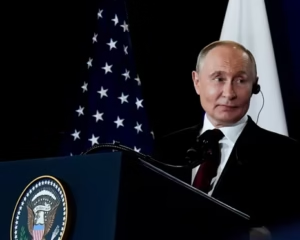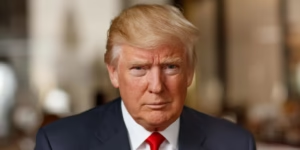Zelensky urges Russia to abandon ‘unnecessary’ demands before peace talks

Ukrainian President Volodymyr Zelensky has announced that Ukrainian and American officials will meet for peace talks in Saudi Arabia next Monday, aligning with a meeting between Russian and US representatives on the same day. The discussions come as both sides explore a potential resolution to the ongoing conflict that has persisted for more than three years. Zelensky has used this opportunity to challenge Russian President Vladimir Putin’s ongoing demands, calling them “unnecessary” and warning that they only serve to prolong the war.
One of the most contentious demands from Russia is for Ukraine to cease receiving military assistance from Western nations, particularly the United States. This, Zelensky argued, is an unreasonable request that disregards Ukraine’s need for defense against Russia’s aggression. Zelensky emphasized that Putin’s insistence on such terms should not be allowed to dictate the course of peace negotiations, suggesting that these demands are more about achieving Russia’s strategic goals than bringing about peace.
Another key issue at the forefront of the talks is NATO membership for Ukraine. Putin has repeatedly stated that any peace agreement must include Ukraine’s permanent exclusion from NATO. For Zelensky, this would be a significant concession, one that would undermine Ukraine’s sovereignty and security. He cautioned that agreeing to remove NATO membership from the table would be akin to offering Russia a “big gift,” as it would give Putin undue leverage and embolden Russian actions. Zelensky reiterated that Ukraine’s future security lies in its alliances, particularly with NATO, and that any negotiations must respect Ukraine’s right to determine its own alliances without external interference.
In response to claims from the White House that he had discussed the idea of transferring control of Ukraine’s nuclear power plants to the US, Zelensky firmly rejected these allegations. He clarified that during a conversation with former President Donald Trump, they had talked about the Zaporizhia nuclear plant, which is currently under Russian occupation. However, Zelensky stressed that Ukraine’s nuclear infrastructure, including the Zaporizhia plant, belongs solely to the Ukrainian people. While Zelensky acknowledged that the US could potentially take steps to assist in securing the plant or modernizing it, he rejected the idea of relinquishing control to the US.
In terms of territorial concessions, Zelensky made it clear that Ukraine would not surrender any of its territory to Russia, particularly the Crimean Peninsula, which Russia annexed in 2014. Crimea remains internationally recognized as part of Ukraine, and Zelensky reaffirmed this stance, insisting that Crimea is “an integral part” of Ukraine. The Ukrainian president’s position is that any discussions on peace must respect Ukraine’s territorial integrity, which includes the return of Crimea to Ukrainian control.
Zelensky also addressed the issue of a potential ceasefire. While both he and Putin have agreed in principle to ceasefire terms through US-mediated discussions, a formal agreement has yet to materialize due to conflicting conditions from both sides. Zelensky emphasized that any ceasefire must start with halting military operations on both land and sea, as this is the only effective way to curb Russia’s continued aggression and protect Ukrainian civilians.
In preparation for the peace talks, Ukraine plans to present the US with a detailed list of critical infrastructure that should be protected from Russian strikes. This includes energy facilities, which have been repeatedly targeted by Russian forces in an effort to destabilize Ukraine. Zelensky’s government has made it clear that the protection of civilian infrastructure is a priority in any ceasefire agreement.
While the war continues, Zelensky remains firm in his calls for continued Western support. During a recent video conference with European leaders, he requested at least €5 billion in military aid, particularly for artillery shells, underscoring that Ukraine’s defense against Russia’s invasion relies heavily on this international assistance. He also urged the European Union not to ease pressure on Russia, warning that any loosening of sanctions or diplomatic pressure could embolden Putin and undermine Ukraine’s position in the peace process.
Amidst the ongoing conflict, there have been signs of international coordination to enforce any future peace agreement. UK Prime Minister Sir Keir Starmer suggested that a peace deal would only hold if there were robust security arrangements in place to ensure its enforcement. Starmer emphasized the need for military planning in parallel with political negotiations, arguing that any agreement reached without sufficient guarantees would likely be violated by Russia, as it had in the past. This reflects broader concerns that any peace agreement would require substantial international oversight and a collective commitment to upholding its terms.
As the war continues to take its toll, Zelensky’s leadership in navigating both military and diplomatic challenges remains pivotal in shaping the future of Ukraine’s sovereignty and security.







